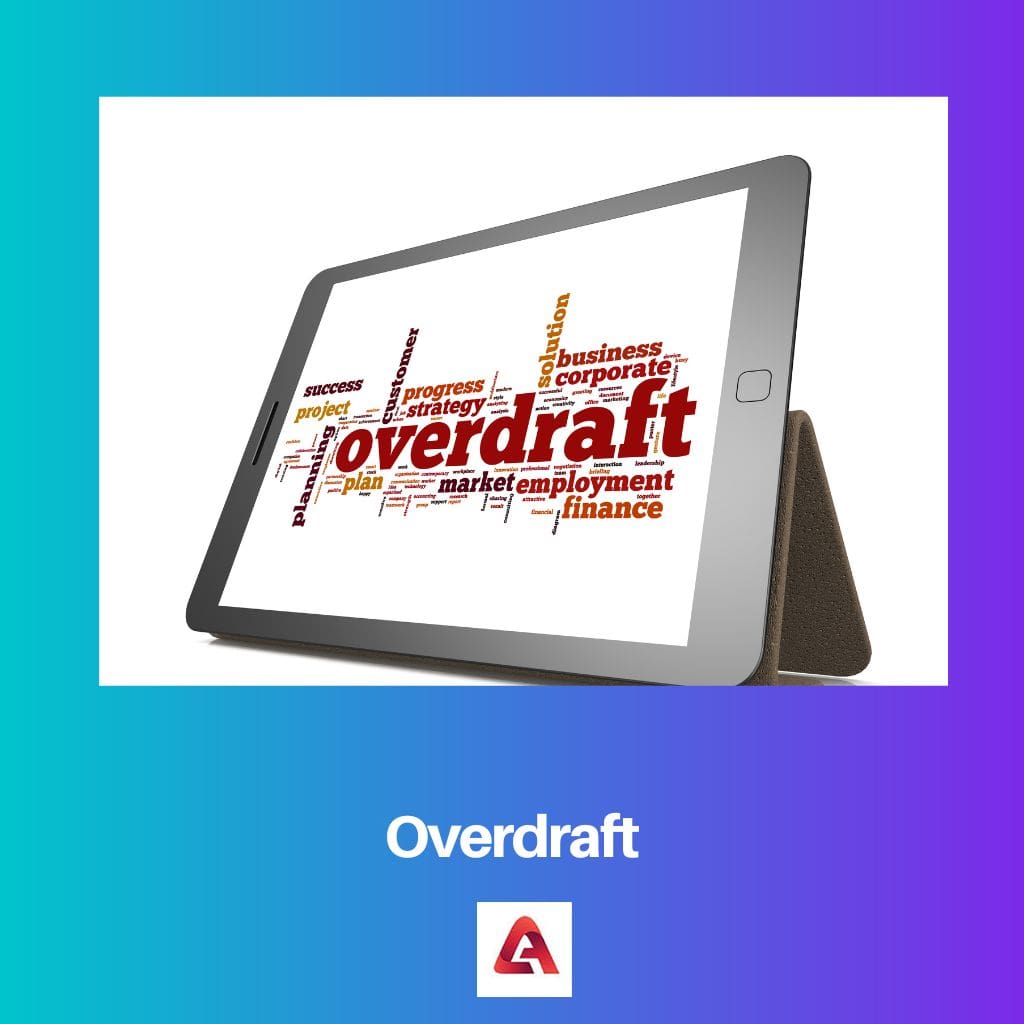Overdraft is a banking term that refers to withdrawing money from a bank account even after no money is left. Usually, an overdraft facility is provided to the customer when the account is created, wherein an overdraft limit is set.
The amount overdrawn is to be within a set limit, and interest is charged at a fixed rate on the amount overdrawn. If the amount overdrawn exceeds the limit, higher interest charges are levied. Essentially, overdrafts may be considered very short time individual loans.
Key Takeaways
- Overdraft is a financial facility that allows an individual to withdraw more money than they have in their account.
- The bank provides a short-term loan and is subject to interest charges and fees.
- An overdraft can be useful for emergencies but should be used responsibly to avoid debt.

Understanding the concept of overdrafts
The best example to understand the concept is to consider a situation where you require withdrawing more money from your bank account than is available, or you must write a cheque to someone even though you have a negative balance. The bank then covers this charge at their discretion according to contractual and signed obligations. They also charge a fee for the same.
Thus, overdrafts are:
- An extension of credit by the bank is to be availed of ideally only in emergencies.
- A regular feature in corporations and businesses in which multiple parties are involved.
- A temporary solution may cost more than anticipated because of the interest charged and the overdraft fee.
Advantages of overdrafts
- Overdrafts are of lesser value than loans and are easier to pay off.
- There is also a degree of flexibility regarding the period you have to pay off your overdrafts.
- There is no hassle of arranging collaterals or other papers because this is a simple service offered to you by the bank.
- You can avoid other fines incurred by unpaid bills by taking out an overdraft and taking care of several billing needs for the time being. This will help you avoid several fines and charges at once while allowing you to pay it off to your bank later.
- You can link your overdraft to a credit card, which will only increase your debt amount.
- In certain unforeseen or special circumstances, banks have been known to pay off overdrafts for certain customers personally.
Disadvantages of overdrafts
- Substantial amounts can be incurred by an individual while taking an overdraft, not to their knowledge.
- The provision of regular overdrafts creates irresponsible banking habits for customers who prefer short-term borrowings to stay financially afloat or meet other payment deadlines.
- Overdrafts may be taken from only the bank where you contain your account. Unlike loans, you cannot apply to other banks without moving your bank account. This is not conducive if you are away in another city and require an immediate overdraft.
- Unlike loans, interest rates tend to fluctuate, and you may not be aware of how much you are investing when availing of the overdraft facility.
References
- https://www.tandfonline.com/doi/abs/10.2753/JEI0021-3624450212
- https://heinonline.org/HOL/LandingPage?handle=hein.journals/waslee69&div=30&id=&page=
Last Updated : 11 June, 2023

Chara Yadav holds MBA in Finance. Her goal is to simplify finance-related topics. She has worked in finance for about 25 years. She has held multiple finance and banking classes for business schools and communities. Read more at her bio page.

It’s good to have the flexibility, but the potential for debt is concerning.
Yes, the convenience comes at a price.
A cautionary look at the potential pitfalls of overdrafts.
Indeed, we need to be more aware of these aspects.
The points about potential debt and fluctuating interest are thought-provoking.
Absolutely, it’s a complex scenario.
The potential costs associated with overdrafts are quite surprising.
Agreed, it’s more complex than it appears at first.
I always thought overdrafts were a good way to get some quick cash, but now I see they can lead to a lot of debt.
Absolutely, we need to be more careful.
This is an eye-opener for sure.
An informative article that highlights both the pros and cons of overdrafts.
It’s concerning that interest rates are not fixed for overdrafts.
That’s true, it adds an element of unpredictability.
The unclear costs can be challenging to manage.
I can’t believe banks charge so many fees!
That’s right. It’s not fair at all.
I know, it’s like they’re punishing those who can’t pay!
I had no idea overdraft interest rates could fluctuate. That seems risky.
It’s something to be cautious about for sure.
Indeed, it adds another layer of uncertainty.
Overdrafts could be a slippery slope for people who struggle with financial discipline.
The ease of access can lead to problems.
That’s a valid concern.